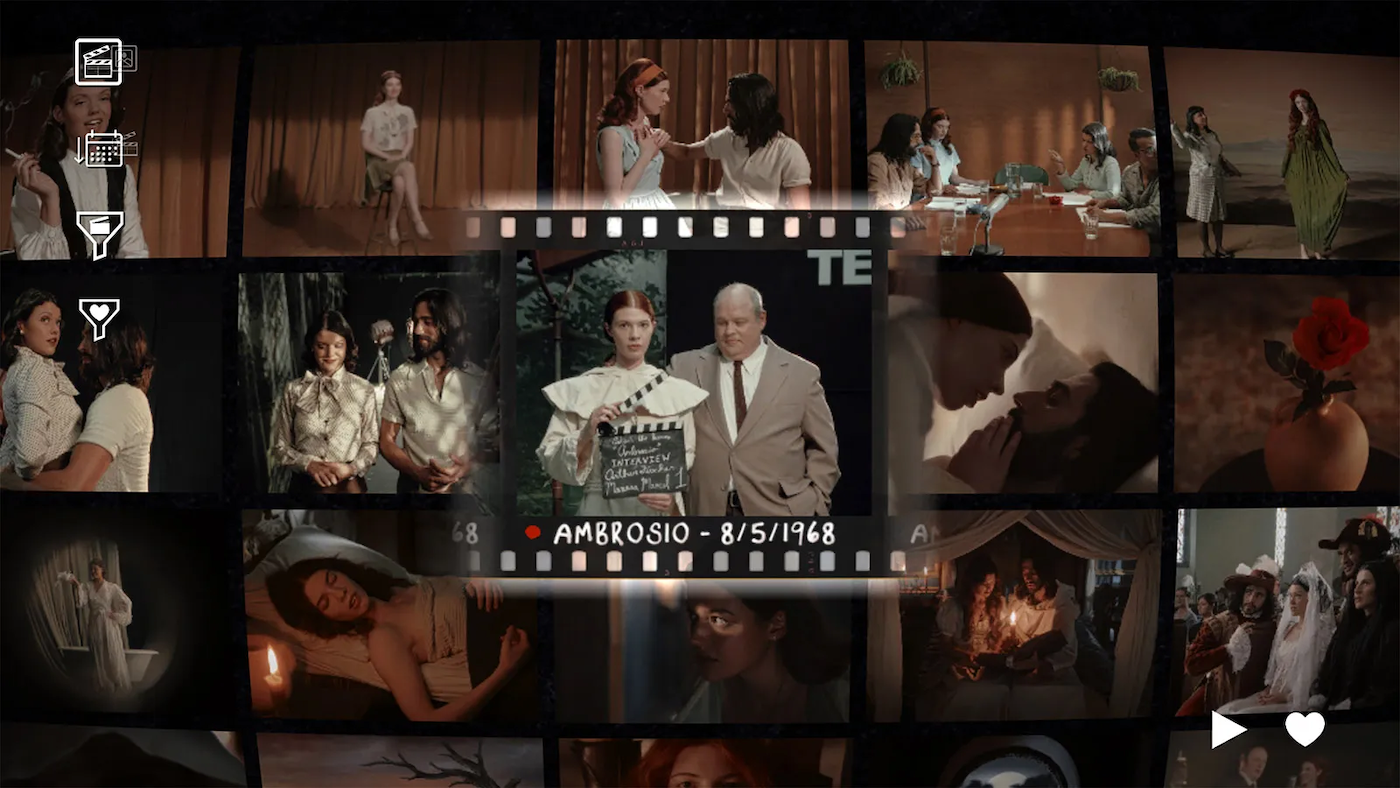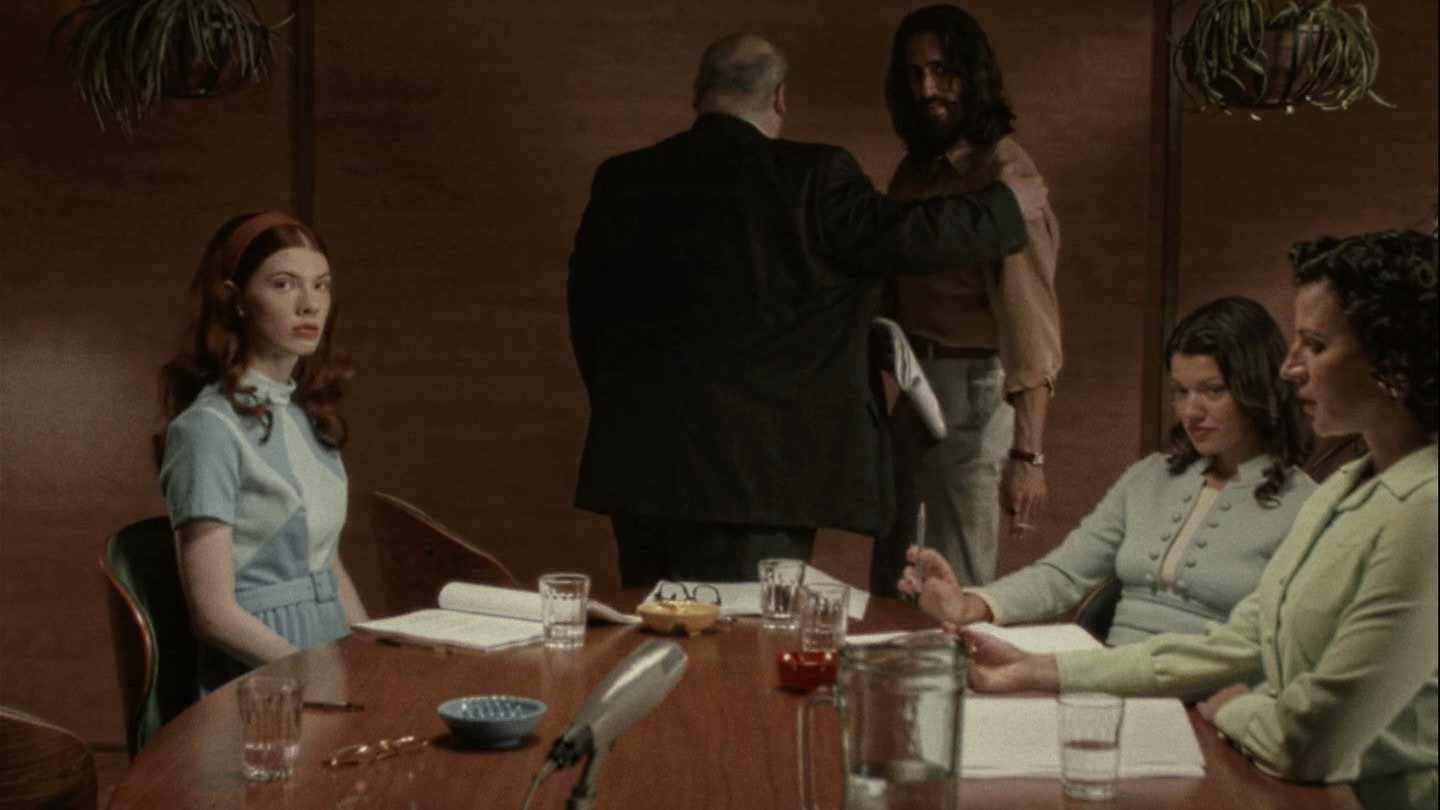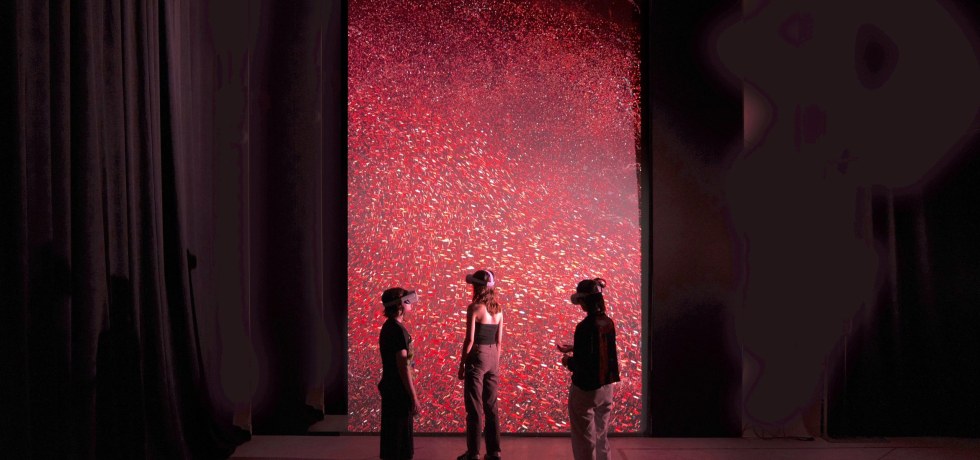Immortality
“Her Story was about deconstructing the detective story and making you feel like a detective. Telling Lies was about deconstructing the political thriller and making you feel like you were performing surveillance. With Immortality, we want to deconstruct movies and moviemaking.”
—Sam Barlow
Immortality is an innovative and unique project created by Sam Barlow, a game developer known for his focus on narrative and player agency. It is a video game that uses three feature-length films to explore the treatment of women in Hollywood, in particular the misogyny they encountered during different eras of cinema. It is played through a clip-oriented system like those created with the Moviola film-editing machine, which remained in use in Hollywood until the transition to digital. By clicking on objects and artifacts in a scene, you can jump into a new narrative or a behind-the-scenes clip. The flexibility in its gameplay allows you to watch the films as a 10-hour-long scrapbooked movie or to play like a true crime fanatic, flipping through manual fast-forward and rewind functions with your keyboard or controller to uncover missed glances and evidence. Immortality explores complex themes and challenges traditional genres, blurring the lines between cinema, gaming and interactive fiction.
The game’s unique mechanics create a seamless blend of cinema and interactive gameplay. Rather than following a linear path, players explore hundreds of clips non-sequentially, rewinding, fast-forwarding, and jumping between scenes in search of meaning. This nonlinear, clip-oriented system immerses players in the experience of film editing, where every artifact, glance, or subtle detail could unlock a new layer of the story. The game is flexible in its structure, allowing players to approach it either as a ten-hour, fragmented cinematic journey or as a true crime-style investigation, scanning every moment for hidden meanings and clues. Through this flexibility, Immortality offers players the chance to experience the content in a deeply personal way, encouraging them to piece together the story in a manner unique to their playthrough.
Immortality is innovative not only in its gameplay but also in its thematic depth. By using film as a narrative framework, Barlow tackles topics seldom explored in gaming, such as the exploitation of women in Hollywood and the oppressive forces in the film industry that span generations. The blending of film and game elements creates an experience that challenges traditional genre distinctions, placing Immortality in a category all its own—somewhere between cinema, gaming, and interactive fiction. The game’s immersive approach to narrative allows players to see behind the glamorous Hollywood facade, unveiling the control and manipulation that female actors often face. This focus on feminist themes within a gaming framework is groundbreaking, making Immortality a powerful example of how video games can engage with complex social issues.
Critics and players alike have praised Immortality’s originality, narrative complexity, and emotional depth. Reviewers have lauded the game’s innovative use of film clips and nonlinear storytelling, which brings a new level of immersion and interaction to the gaming world. By combining cinematic techniques with investigative gameplay, Immortality has captivated audiences and solidified Barlow’s reputation as a pioneer in narrative-driven games. Its success highlights the potential for video games to be used as a medium for sophisticated storytelling and social commentary, setting a new standard for how interactive experiences can be used to examine real-world issues in ways that are both engaging and thought-provoking.
A video game production company based in Brooklyn, Half Mermaid was founded in 2017 by four-time BAFTA-winning writer-director Sam Barlow. Its first title, the intimate investigative thriller Telling Lies, was published in 2019 by Annapurna Interactive. Immortality was released in 2022 to critical acclaim, including receiving the first perfect 10/10 score in Edge magazine for an independent game. In 2023, production began on Half Mermaid’s most ambitious titles to date, Project C██████ and Project D████.
IN THE MEDIA
“The allure of the interactive movie has lasted for over half a century, and yet the idea has never quite escaped the bounds of novelty, or the sinking feeling that what’s technologically possible is not necessarily artistically worthwhile. [Netflix’s] Choose Love is just one episode in what seems like a long, doomed romance between incompatible forms. But there is now one exception: the work of Sam Barlow. . . .“[Immortality] presents you with a vast trove of footage from, ostensibly, the making of three films. . . . It includes unedited takes, complete with slates and on-set chatter, along with rehearsals, auditions, read-throughs, and other behind-the-scenes footage, and a few talk show appearances and cast parties. All three films star a young actress named Marissa Marcel (who remains young in all three), and none was ever completed or released. That is the mystery we are invited to explore: What went wrong in the making of these films? And, as the game’s marketing insistently asks, what happened to Marissa Marcel? . . .
“Patterns emerge: all three films involve disguise and sexualized violence in one form or another, and all three sets are riven by sexual tensions and pressures. The director of Ambrosio, who casts Marcel, when she is just seventeen, as a deceitful seductress, is a leering manipulator (clearly based on accounts of directors like Alfred Hitchcock, Franco Zeffirelli, and Otto Preminger). The director of Minsky is in a sexual relationship with Marcel (now twenty)—the affair seems both passionate and pragmatic, though it is not always clear who is using whom. Barlow has said that Marcel was inspired by midcentury stars like Jean Seberg and Jane Fonda, and she is played by an actress named Manon Gage, in her first major role, with a kind of complex transparency. Gage shows us how Marcel’s performances change, shows us her combination of passion and vulnerability, intelligence and naiveté. You can always see Marcel thinking, though not always what she is thinking. You can see her learning fast, from dubious teachers.
“Her yearning for artistic transcendence is apparent and moving—and the films, crucially, are not parodic, not made to seem especially terrible. (Minsky might even be good.) But an uneasiness underlies it all, a rancid aftertaste of misogyny and exploitation. A view of cinema is being presented as the fragments accumulate: that it inevitably involves violations of trust; that it is inseparable from lust and brutality; that it, and art in general, is nonetheless worth any sacrifice. Presented, but not quite endorsed.”
—The New York Review of Books
“Very occasionally, a game comes along that is so entirely unlike anything you’ve ever played that it becomes an obsession. Immortality, the latest from lauded game-maker Sam Barlow and his studio Half Mermaid, is one of those. It is something that has never existed before: a video game that is also three feature-length films, wrapped around a mystery so compelling that I couldn’t concentrate on anything else for days. . . .“Put together, these three films tell a story about film-making, about the price of art, and about Hollywood’s exploitation of women. But it is in the way that you experience them – recreating them piecemeal by following your intuition, noticing something in an actor’s face or an off-camera comment, diving down rabbit holes and discovering that they are deep and branching – that the true story of Immortality is told. It is a delicate and multilayered mystery that you unravel yourself, scrubbing through these scenes and searching for clues. As a player, you reach a turning point after maybe an hour, maybe two, when you’ll be watching a scene and think, wait – did I just see what I thought I saw? You’ll wind it back. Watch again. Follow the thread. And an extraordinary mystery starts to reveal itself at the centre.”
—The Guardian



